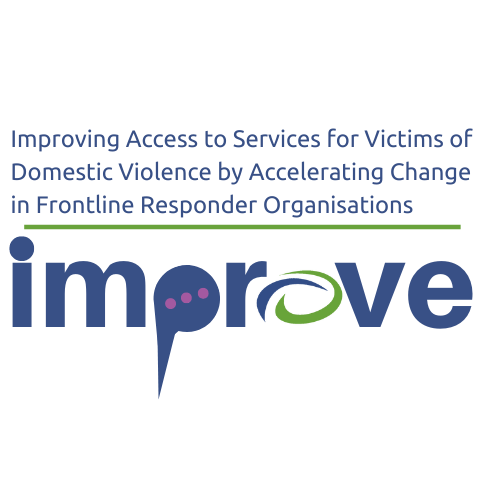Interprofessional study day on La Réunion
On 15 April, CNRS participated in an international study day on La Réunion island, France. The title of the event was: Domestic and Family Violence and Substance Use. There were 25 speakers and an audience of around 100 participants. Thierry Delpeuch delivered the scientific introduction at the start of the day and summarised the presentations at the end. The conference was organised by the Research Action Group on Family Violence, of which CNRS/IMPROVE is a member, in collaboration with the University of La Réunion and a local network of health professionals specialising in the care of individuals with substance use disorders.
Aims of the inter-professional study day
Improve support for both victims and perpetrators of domestic/intimate partner violence by discussing the interconnections between alcohol or drug use (or addictive behaviours more broadly) and violence within couples or families.
Examine the role of substance use — and potentially addictive behaviours — in transgressive acts: consumption as self-justification, dissociation ("it wasn’t me, but another version of myself"), triggering factors, or breeding ground for violence.
Provide professionals who support victims and perpetrators of intimate partner violene (IPV)/ domestic violence (DV) who use substances with a space for exchange and interaction; strengthen the network of professionals involved.
Challenge existing representations and adapt legal, medical, and social responses. Substance use may be a factor on the part of either the perpetrator or the victim. Explore the interactions between perpetrators and victims concerning substance use.
Summary of the Inter-professional Study Day: Domestic and Family Violence and Substance Use
The inter-professional study day brought together a range of experts to examine the complex links between substance use and domestic/family violence (DFV). Key insights emerged concerning the role of addiction as both an aggravating factor and a distinct causal variable in the dynamics of violence.
Addiction: A Causal Variable, Not Merely a Consequence
Addiction was discussed not simply as a consequence of deeper factors such as childhood trauma or adverse family environments, but as a causal factor in its own right. From a methodological standpoint, addiction must be treated as an independent variable rather than a background symptom. Statistical studies support this view: for example, among patients presenting with the same psychiatric condition and receiving the same treatment, those with comorbid substance use disorders were found to commit five times more acts of violence than those without such disorders.
Although substance use may not constitute a “root cause,” its presence significantly amplifies the risk posed by other underlying factors. In other words, while the underlying causes remain constant, addiction increases the likelihood that these causes will result in violent behaviour. Alcohol, in particular, may not fully explain the origins of violence, but it constitutes a substantial part of the problem.
This strong correlation between substance use and violence raises an important dilemma: on one hand, there is a risk of oversimplifying the issue by attributing causality solely to addiction, thereby neglecting deeper structural or psychological causes. On the other hand, failing to integrate addiction into violence prevention and response strategies constitutes a serious oversight.
The Role of Addiction in Violence Prevention Frameworks
The discussions highlighted the relevance of situational prevention approaches—widely used in the field of security—which focus on the contextual factors that enable or facilitate violent acts. According to the literature, failure to take addiction seriously in such frameworks is often a key reason for their ineffectiveness.
It was argued that addiction treatment services (addictology) should be a central component of any comprehensive system for addressing domestic violence. This must, however, be embedded in a broader multidisciplinary strategy that includes mental health care and trauma-informed services. When addiction services are underdeveloped or fragmented, there is a tendency to treat addiction as a secondary issue, leading to inadequate responses. In such cases, the scale of the problem is often perceived through the narrow lens of available institutional tools, rather than through an accurate assessment of needs.
A patient-centred approach was strongly advocated—one that addresses the multiple and overlapping needs of individuals. Reducing substance-related harm, including helping perpetrators learn not to be violent even when under the influence, should be considered a key objective of interventions.
Coordination and Strategic Gaps in La Réunion
The interventions presented during the day suggested that, in La Réunion, institutional responses to DFV currently oscillate between siloed approaches and more coordinated ones. Some institutions focus on detection of addiction-related issues but lack clear strategies for follow-up or long-term support. Others adopt a more holistic and coordinated approach. However, there was no mention of existing protocols or overarching strategies dedicated specifically to addiction within DFV responses.
This reflects the situation described in the broader literature: inter-agency awareness and service mapping are often present, but these are not in themselves sufficient. There is a pressing need for an explicit strategy, including formalised protocols and structured collaborations. A central question raised during the study day was whether the current initiatives in place are sufficient or whether more needs to be done in terms of coordination and integration.
Looking Ahead
The event highlighted a key opportunity for La Réunion to position itself as an innovator in the integrated response to domestic and family violence, particularly for vulnerable groups and substance use. At the same time, it exposed ongoing challenges, notably the difficulty that many domestic violence services face in developing effective interventions tailored to specific vulnerable populations.
The study day served as a valuable starting point for identifying gaps and fostering dialogue, and it opens the way for further collaborative efforts and concrete strategic planning.

